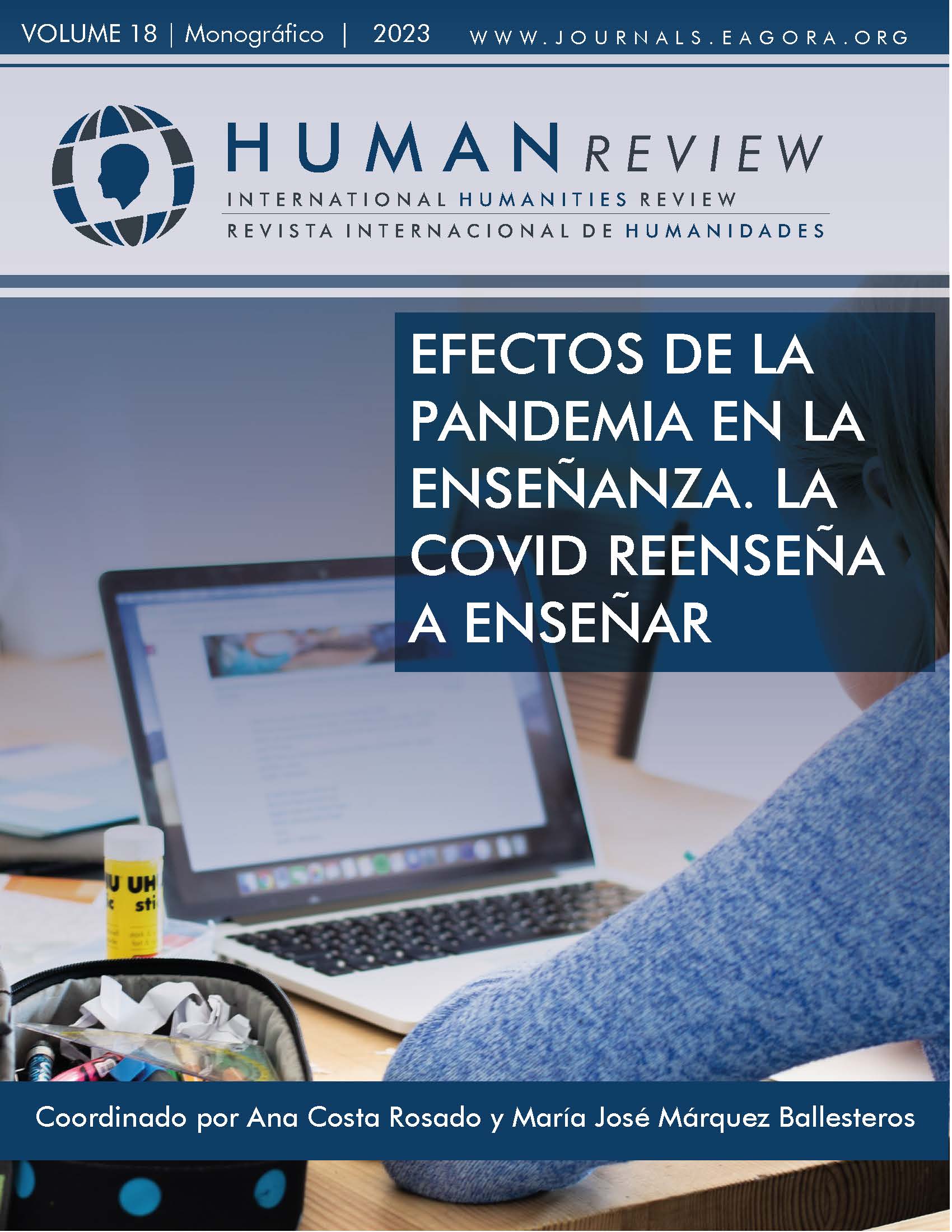Higher education and pandemic: Contributions from the critical perspective of university students
Keywords:
Higher education, Online teaching, Teaching innovation, Digitized teaching, University students, Covid-19 Pandemic, Qualitative analysisAbstract
The pandemic caused by COVID-19 led educational institutions to suspend all types of face-to-face activity. Higher education began to develop in digital contexts, which meant a redesign in terms of resources, instruments, modes, action strategies and measures to be implemented in the teaching-learning process. This study analyses, from a qualitative perspective, the visions of students on university teaching in pandemic contexts. The results show the differential perspective of the students, -enthusiastic, critical, condescending and nostalgic- about the higher education, inresponse to their university experience, lived in contexts of profound exceptionality.
References
Braun, V., & Clarke, V. (2006). Using thematic analysis in psychology. Qualitative Research in Psychology, 3:2, 77-101. http://doi.org/10.1191/1478088706qp063oa
Gallardo, L.M.G., y Buleje, J.C.M. (2010). Importancia de las TIC en la educación básica regular. Investigación educativa, 14(25), 209-226.
Gil Villa, F., Urchaga Litago, J. D. y Sánchez Fernández, A. (2020). Percepciones y expectativas en el alumnado universitario a partir de la adaptación a la enseñanza no presencial motivada por la pandemia de COVID-19. Revista Latina, (78), 65-85. https://doi.org/10.4185/RLCS-2020-1470
Gómez Suárez, A.; Vázquez Silva, I. (2022). Universidad, pandemia y desigualdad: el “ser-para-sí” y el “ser-para-otros” en la Academia, Revista de Investigaciones Feministas, 13(1), pp. 13-25. https://doi.org/10.5209/infe.77735
González Velázquez, L. (2020). Estrés académico en estudiantes universitarios asociados a la pandemia por COVID-19. ESPACIO I+D, INNOVACIÓN MÁS DESARROLLO, 9(25). https://doi.org/10.31644/IMASD.25.2020.a10
Hawie Lora, I. (2021). La doble pandemia: violencia de género y COVID-19. Advocatus, (039), 103-113. https://doi.org/10.26439/advocatus2021.n39.5120
Jiménez, J.C. (2020). Polémicas Educativas en Confinamiento. Revista Internacional De Educación Para La Justicia Social, 9(3), 199-221. https://doi.org/10.15366/riejs2020.9.3.011
Maxwell, J. A. (2010). Using numbers in qualitative research. Qualitative Inquiry, 16, 475–482. https://doi.org/10.1177/1077800410364740
O’Connor, C., & Joffe, H. (2020). Intercoder Reliability in Qualitative Research: Debates and Practical Guidelines. International Journal of Qualitative Methods Volume 19: 1–13. https://doi.org/10.1177/1609406919899220
Paricio del Castillo, R., Pando Velasco, M. F. (2020). Salud mental infanto-juvenil y pandemia de COVID-19 en España: cuestiones y retos. Revista de psiquiatría infanto-juvenil, vol 37, número 2, pp 30-44. https://doi.org/10.31766/revpsij.v37n2a4
Pedreira Massa, J.L (2020). Salud mental y covid 19 en infancia y adolescencia: Visión desde la psicopatología y la salud pública, Rev Esp Salud Pública, vol 94, e1-17.
Ruiz-Ruiz, J., Pérez-Jorge, D., García García, L., Lorenzetti, G. y (2021). Gestión de la Convivencia. Octaedro.
Vall-Roqué, H., Andrés, A., Saldaña, C. (2021). El impacto de la pandemia por covid 19 y del confinamiento en las alteraciones alimentarias y del malestar emocional en adolescentes y jóvenes en España. Psicología Conductual, vol. 29, nº2, pp 345-364. https://doi.org/10.51668/bp.8321208s
Valenzuela García, H. (2020). Teletrabajo y amplificación de la desigualdad en la sociedad post-pandemia española. Revista Andaluza de antropología, vol 19, pp14-36. https://dx.doi.org/10.12795/RAA.2020.19.02
Downloads
Published
Issue
Section
License
All articles are published under an Attribution-NoDerivatives 4.0 International (CC BY-ND 4.0) license. Authors retain copyright over their work.

